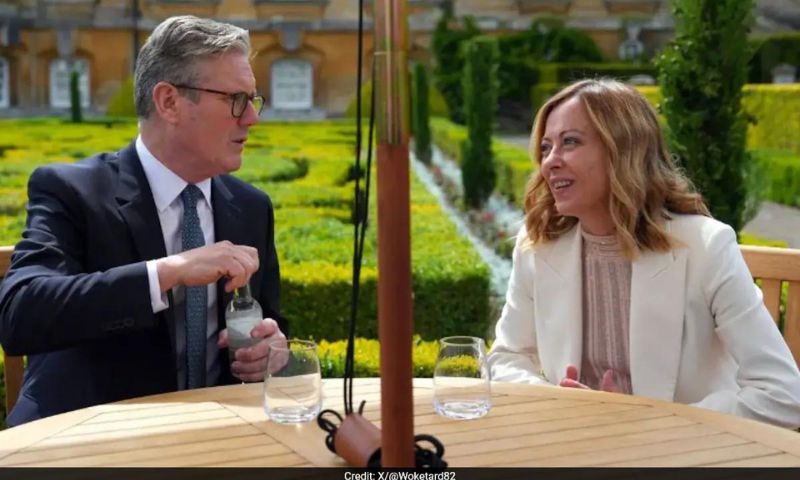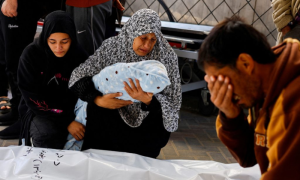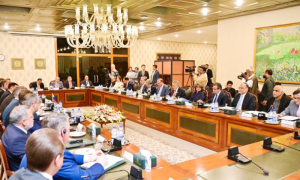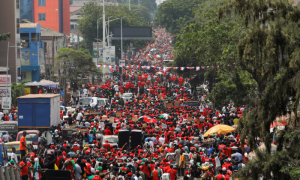ROME: British Prime Minister Keir Starmer and Italian Prime Minister Giorgia Meloni met in Rome on Monday to discuss tackling illegal immigration, a day after another tragic incident in the English Channel that claimed the lives of eight migrants.
Starmer, who secured a decisive victory in July’s parliamentary elections with his centre-left Labour Party, has made tackling illegal immigration a central pillar of his agenda. His visit to Italy reflects his interest in learning from Italy’s recent successes in managing migrant flows and exploring new strategies for the UK.
In a visit to Italy’s national immigration coordination centre, Starmer, accompanied by Italy’s Interior Minister Matteo Piantedosi, observed the country’s efforts to handle migrant arrivals. He expressed interest in understanding Italy’s recent success in reducing migrant numbers, commenting, “There has been quite a dramatic reduction here, and I want to understand how that came about.”
The visit began with a formal reception at Rome’s Villa Doria Pamphili at 12:00 local time (10:00 GMT) before the substantive discussions between Starmer and Meloni. The Italian leader, known for her far-right stance and leadership of the Brothers of Italy party, has implemented several controversial policies to curb illegal migration into Europe.
One key initiative discussed was Italy’s agreement with Albania, signed in November, which established two migrant processing centers in the Balkan country. These centers are designed to house up to 3,000 migrants while their asylum claims are processed.
Unlike the UK’s former Conservative government’s plan to deport all undocumented migrants to Rwanda, Italy’s approach allows for the processing of asylum claims with successful applicants granted entry into Italy, while rejected applicants are returned to their country of origin.
Starmer has criticized the previous UK government’s Rwanda plan, which involved sending migrants to Rwanda with no possibility of settlement in the UK, regardless of the asylum outcome. He has shown interest in alternative strategies, including those employed by Meloni’s government.
Italy has also strengthened its migration controls through deals with Tunisia and Libya. The agreement with Tunisia includes aid in exchange for greater efforts to prevent migration to Italy. Additionally, Italy renewed its controversial partnership with the UN-backed Libyan government, which involves training and funding for the Libyan coastguard to prevent migrant departures and facilitate the return of those already at sea.
Human rights groups have condemned this policy, arguing that it forces migrants back to Libya, where they face significant risks of abuse and detention.
The number of migrant arrivals to Italy by sea has notably decreased this year. Between January 1 and September 13, 2024, Italy recorded 44,675 arrivals compared to 125,806 during the same period in 2023.
Despite this drop, migration trends across Europe have shifted, with increases reported on alternative routes, such as those from West Africa and the Eastern land borders.
Starmer’s trip has faced criticism from within the UK, particularly from Labour MP Kim Johnson, who expressed concerns about learning from a government with far-right associations.
Johnson told The Guardian, “It is disturbing that Starmer is seeking to learn lessons from a neo-fascist government, especially after the far-right violence and racism that surged in Britain this summer.”























